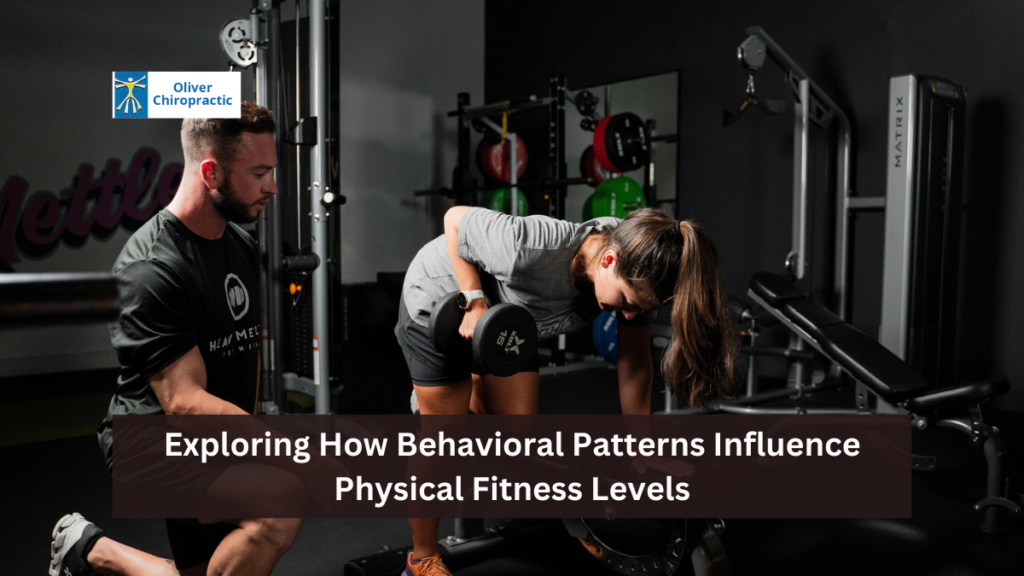Physical fitness encompasses various attributes related to health and performance, including cardiovascular endurance, muscular strength, flexibility, and body composition. These elements contribute to an individual’s overall health and ability to perform daily tasks. However, fitness levels can significantly vary among individuals, influenced by various behavioral factors.
Role Of Exercise Habits
Regular physical activity is a cornerstone of physical fitness. Aerobic exercises such as running, swimming, or cycling enhance cardiovascular health, while strength training builds muscle and bone density. Studies indicate that at least 150 minutes of moderate-intensity aerobic activity per week can yield substantial health benefits.
Behavioral patterns greatly influence exercise habits. Individuals with a routine of regular physical activity tend to achieve higher fitness levels. A survey by the Centers for Disease Control and Prevention found that only 23 percent of Americans meet the recommended guidelines for physical activity.
In contrast, a sedentary lifestyle has adverse effects. According to the World Health Organization, inactivity contributes to various health issues, including obesity, heart disease, and diabetes. Moreover, habits formed early in life often dictate long-term fitness behaviors.
For example, children engaged in sports are more likely to continue exercising into adulthood, highlighting the importance of establishing a fitness culture.
Nutrition Choices And Their Impact
Dietary choices play a crucial role in achieving and maintaining physical fitness. A balanced diet rich in whole foods, including fruits, vegetables, lean proteins, and whole grains, fuels the body and supports fitness goals.
Research from the Harvard School of Public Health indicates that a diet high in processed foods is linked to obesity and chronic diseases, which can undermine fitness levels.
Behavioral factors significantly influence dietary habits. Individuals who prioritize meal planning and preparation are more likely to consume healthier foods. A study published in the journal Nutrients found that individuals who prepare meals at home tend to have better nutritional quality in their diets compared to those who frequently eat out.
Furthermore, emotional eating can negatively impact physical fitness. Individuals who consume food in response to stress or emotional triggers may struggle with weight management and overall health. Awareness of these behaviors and adopting mindful eating practices can lead to healthier dietary choices.
Mental Well-Being And Physical Fitness
Mental health is intricately linked to physical fitness. Individuals with positive mental health are more likely to engage in physical activities and maintain a healthy lifestyle. Conversely, poor mental health can lead to decreased motivation and increased sedentary behavior.
Research from the American Psychological Association indicates that regular physical activity can alleviate symptoms of anxiety and depression. Exercise releases endorphins, which are natural mood lifters. Establishing a routine that includes physical activity can significantly enhance mental well-being and, in turn, improve fitness levels.
Behavioral factors such as social support and motivation play a significant role in maintaining mental health. Group activities or group exercises with friends can boost motivation and make fitness routines more enjoyable.
The sense of community often found in group classes or team sports can encourage commitment to fitness goals.
Influence Of Sleep And Recovery
Sleep is a critical component of physical fitness that is often overlooked. Quality sleep supports recovery, enhances performance, and regulates hormones related to appetite and stress. According to the National Sleep Foundation, adults should aim for 7 to 9 hours of sleep per night for optimal health.
Behavioral habits surrounding sleep can impact fitness levels. Poor sleep hygiene, such as irregular sleep schedules or excessive screen time before bed, can lead to sleep deprivation. This deprivation negatively affects physical performance and overall fitness.
A study published in the journal Sports Medicine found that sleep deprivation can hinder athletic performance, reduce motivation for exercise, and increase the risk of injury.
Creating Lasting Change
Behavioral changes are essential for improving physical fitness levels. Setting realistic goals, tracking progress, and seeking social support can facilitate positive changes. Individuals looking to enhance their fitness levels should consider the following strategies:
- Establish A Routine: Consistency is vital in developing exercise habits. Scheduling workouts can help integrate physical activity into daily life.
- Set Specific Goals: Defining achievable fitness goals can provide direction and motivation.
- Practice Mindful Eating: Awareness of food choices and emotional triggers can promote healthier eating habits.
- Prioritize Sleep: Implementing good sleep hygiene practices can improve recovery and performance.
- Seek Support: Engaging in group activities or finding an exercise partner can enhance motivation and accountability.
FAQs
What Is The Importance Of Physical Fitness?
Physical fitness improves overall health, enhances quality of life, and reduces the risk of chronic diseases.
How Does Diet Affect Physical Fitness?
A balanced diet fuels the body, aids recovery, and supports optimal performance during physical activities.
What Role Does Mental Health Play In Fitness Levels?
Positive mental health encourages physical activity, while poor mental health can decrease motivation and increase sedentary behavior.
How Much Exercise Is Recommended For Adults?
Adults should aim for at least 150 minutes of moderate-intensity aerobic activity per week, along with strength training twice a week.
Why Is Sleep Important For Fitness?
Quality sleep supports recovery, enhances performance, and regulates appetite-related hormones, impacting overall fitness levels.



